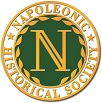Our 2024 Annual Conference
was held November 15-17 in Mexico City
Our Mexico City Conference was one of the most memorable we’ve ever had. We stayed at the spectacular Gran Hotel de Ciudad de Mexico right on the central square. The hotel greeted us with a glass of bubbly and a personalized desert tray in our rooms! The hotel’s famous Tiffany-style stained glass ceiling was constructed by the famous French artisan, Jacques Gruber in his workshop in Paris. It was transported by ship and reassembled to form the roof of one of the most posh department stores in the capital in 1908. Now a beautiful hotel since 1968 converted for the Olympic games, it has featured in movies and television, most recently in the riveting opening scenes of the James Bond movie, Spectre.
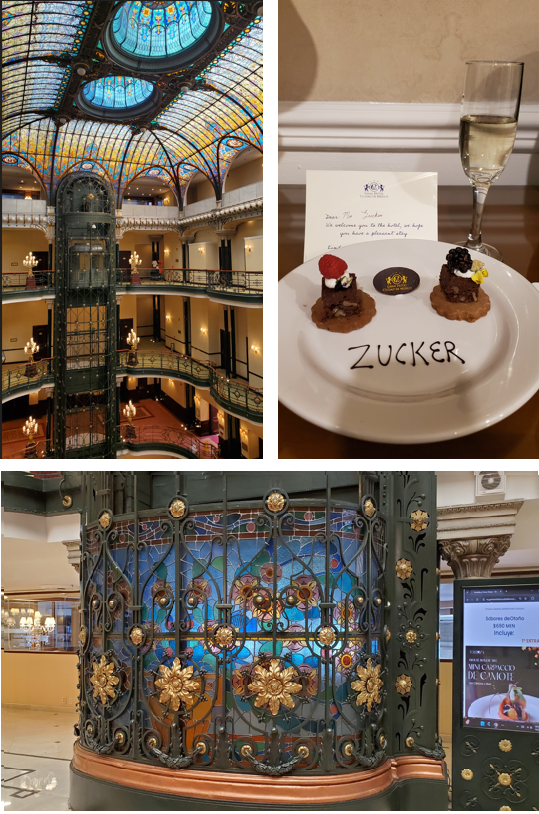
The Terraza rooftop restaurant in the hotel was excellent and had stunning views of the city center
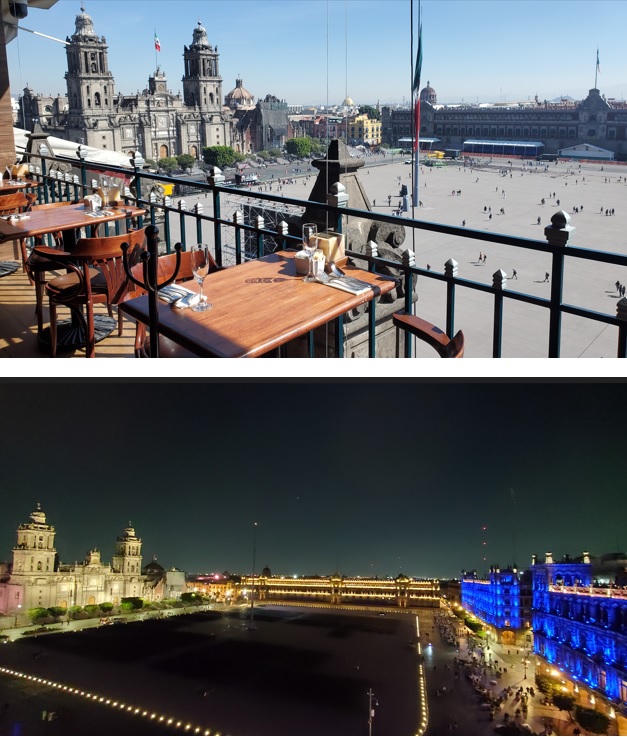 The conference itself had a very special start. We went to the Monterrey Technical University’s Mexico City campus so that their students could attend an interview of NHS President Chris Sloan, INS President David Markham, and members Eusabio Gomez and Kevin Rodriguez by Mexican television personality Leo Zuckerman. We received an unexpected special welcome by a group of students in Dia de la Muertos (Day of the Dead) costumes! who danced and gave each of an individual “message from above” then lead us to the site of a concert and series of dances put on for us by students in traditional dress. Toward the end of the series, they pulled about 10 of us out of our seats to join them.
The conference itself had a very special start. We went to the Monterrey Technical University’s Mexico City campus so that their students could attend an interview of NHS President Chris Sloan, INS President David Markham, and members Eusabio Gomez and Kevin Rodriguez by Mexican television personality Leo Zuckerman. We received an unexpected special welcome by a group of students in Dia de la Muertos (Day of the Dead) costumes! who danced and gave each of an individual “message from above” then lead us to the site of a concert and series of dances put on for us by students in traditional dress. Toward the end of the series, they pulled about 10 of us out of our seats to join them.
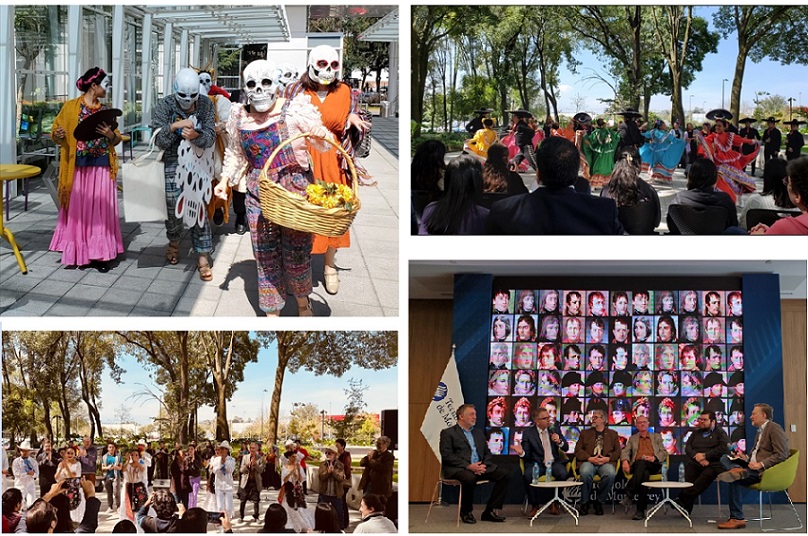
Our Friday dinner featured a talk by Dr. Marco Antonio Cabrera Geserick, Ph.D. “Latin America and the Napoleonic Era 1799-1821.”

We had an excellent program on Saturday, including the following talks:
- Anahí Esparza Vallín, M.Ed. “Conflict and confluence, an Overview of the French influence in Mexico.”
- Kevin Rodriguez, F.I.N.S. “To Conquer a Peace and a Rebellion: Gen. Winfield Scott and his service during US Mexican War and the American Civil War.”
- Edna Markham, M.Sc.,P.Geo.“The Use of Google Earth to Illustrate the Russian Campaign of 1812.”
- Lic. Jesús Motilla Martínez “Discovering, Through A Novel, The Untold Story of Joseph Bonaparte”
- Chris Sloan, President. N.H.S. “The War of the Oranges: Prelude to the Peninsula”
- Eusebio Gomez “Chapultepec Castle, Historical Gem and Intended Seat of Imperial Mexico.”
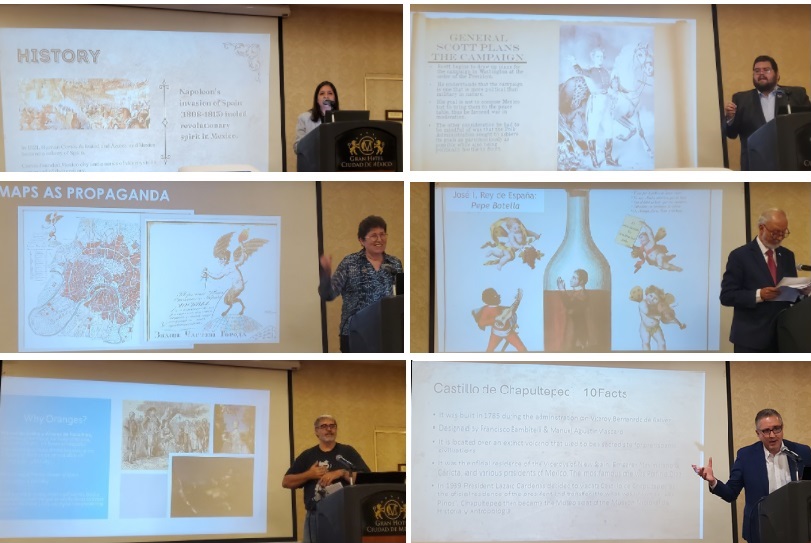
Our Saturday dinner featured a talk by J. David Markham, M.A., M.Ed, “Following the Road to Glory: Stendhal’s Napoleonic Adventure.”

On Sunday we had a wonderful guided tour of the central plaza area, the Palacio de las Belles Artes
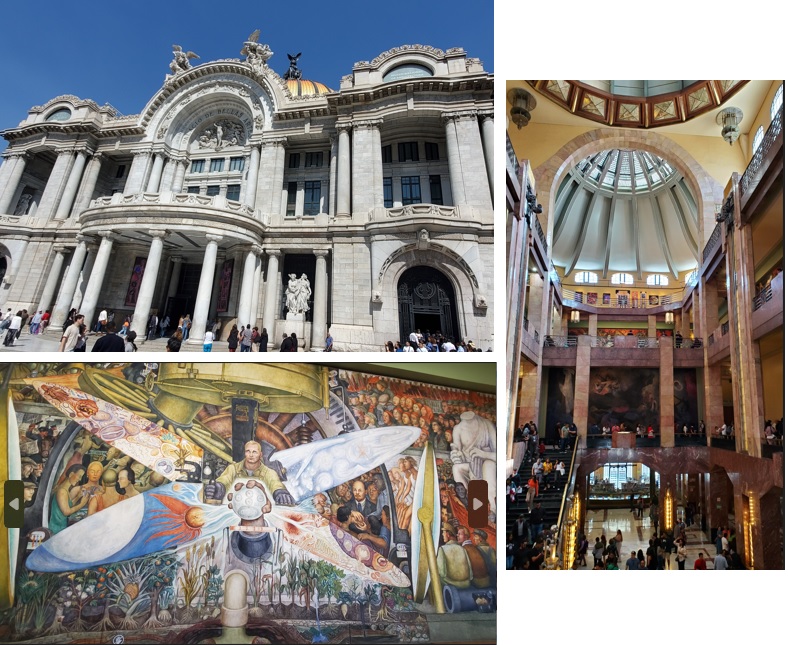 and Chapultepec Castle, where Emperor Maximilian lived, and its on-site museum. Note the bust of Napoleon above the entry. On the way we were treated to a traditional performance.
and Chapultepec Castle, where Emperor Maximilian lived, and its on-site museum. Note the bust of Napoleon above the entry. On the way we were treated to a traditional performance.

A truly fine time was had by all! We hope to see you next year in San Diego!

